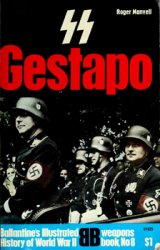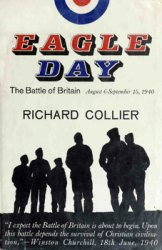Filibustering was a term used in the antebellum period to describe privately organized military expeditions into the Caribbean and Central America in the 19th century. Though most participants in filibustering expeditions of the 1840s and 1850s were generally sympathetic to Manifest Destiny and Southern proslavery extremism, filibustering also attracted men who hoped to make their fortunes or who simply needed work.
The most famous of the filibusterers was Tennessean William Walker. While studying medicine in Europe, Walker was deeply influenced by the first flowering of European revolutionary nationalism. Though he briefly practiced medicine, he became an impassioned advocate of further U. S. expansion into Mexico, resolving that if the U. S. government would not build on its successes in the Mexican-American War, he would do so personally.
Moving to San Francisco in the early 1850s, Walker made good on his commitment. He gathered a volunteer force, journeyed south, and took control of the northwestern Mexican town of La Paz. There he proclaimed the establishment of the Republic of Lower California. When Mexican forces threatened his position in La Paz, Walker moved his men north to Ensenada, declaring that he had founded the Republic of Sonora. Though Mexico had abolished slavery, Walker’s would-be countries both protected it.
The U. S. government, wary of renewing its divisive conflict with Mexico, did not provide Walker with any assistance. DESERTION, poor organization, and harsh conditions all undermined Walker’s efforts, and he finally fled Mexico. U. S. officials sympathetic with Walker’s venture saw to it that the federal government did not charge Walker with any crime.
Several years later, Walker led another expedition, this time to intervene in a Nicaraguan civil war. Victories there led Walker to declare himself Nicaragua’s president. To the delight of Southern plantation owners, Walker repealed the country’s antislavery laws. Southern advocates of Manifest Destiny now spoke of annexing Nicaragua and perhaps all of Central America.
While Walker’s proslavery stance thrilled many Southerners, it infuriated most Nicaraguans and deeply concerned other Central Americans who feared that Walker—or the United States itself—might threaten the entire isthmus. Walker made his situation more precarious when he angered RAILROAD financier Cornelius Vanderbilt, who had contracted with Nicaragua’s previous government to build and manage a railroad that would carry passengers and freight between Nicaragua’s Caribbean and Pacific coasts. Believing that the contract had benefited Vanderbilt more than it had Nicaragua, Walker canceled the arrangement. When Costa Rica declared war against Walker’s Nicaragua, Vanderbilt lent his support. In 1857 Walker was forced out of Nicaragua.
Walker’s Nicaraguan adventure deeply divided American officials. Some, like Secretary of War JEEEERSON Davis, openly sympathized with Walker’s objectives. Some proslavery officials saw Walker as taking the first necessary steps toward the U. S. conquest of the entire Caribbean, creating a “golden circle” of slavery.
At the same time, a number of American politicians, even those sympathetic to the expansion of SLAVERY within U. S. territory, worried that Walker and other filibusterers might entangle the United States in dangerous conflicts, not only with Latin American and Caribbean states but also with Britain and France. In addition, the prospect of an aggressively expanding “slaveocracy” hardened antislavery opinion in the North and contributed to the growth of the new Republican Party. It was for such reasons that President JAMES BuCHANAN, a Pennsylvania Democrat allied with proslavery Southerners, ultimately refused U. S. support for Walker.
Walker returned to Central America twice, but each time he was repulsed. After his last incursion, into Honduras, Walker surrendered to a British naval commander, who turned the prisoner over to Honduran authorities. In 1860 the Hondurans executed Walker before a firing squad.
With a Union victory in the CiViL War, much of the impetus for filibustering ended. Though some American politicians continued to harbor ambitions for Central America and the Caribbean, privately financed attacks ceased. For the peoples of Central America and the Caribbean, however, the image of Americans shooting their way into power persisted, influencing their response to American intervention in regional affairs well into the 20th century.
See also EOREIGN POLICY.
Further reading: Merritt Parmelee Allen, William Walker, Filibuster (New York: Harper & Bros., 1932).
—Tom Laichas




 World History
World History









